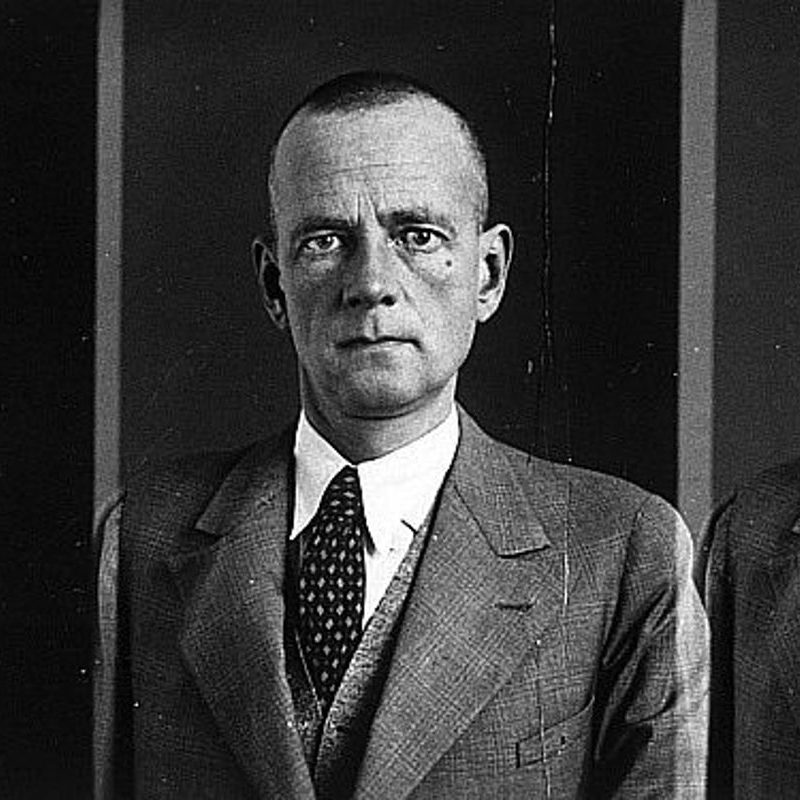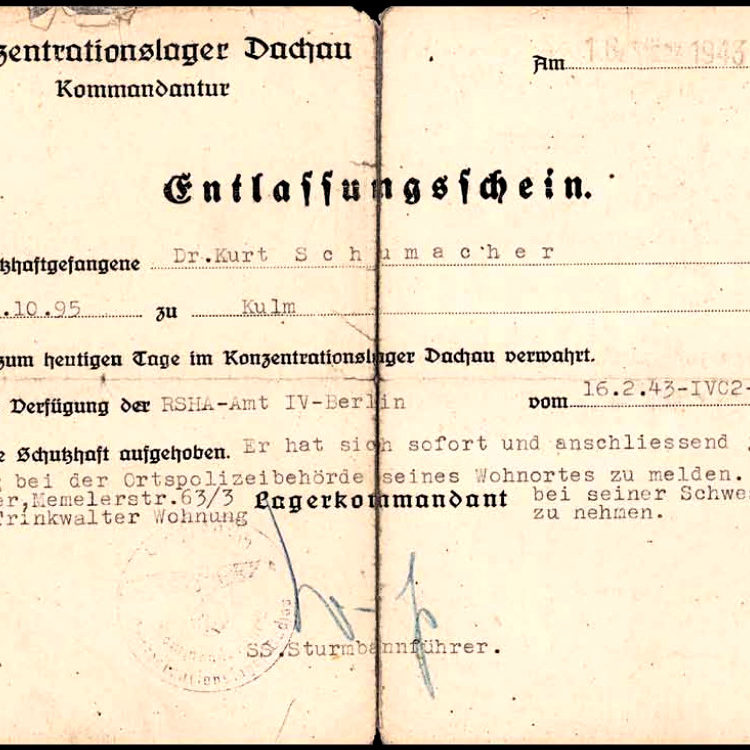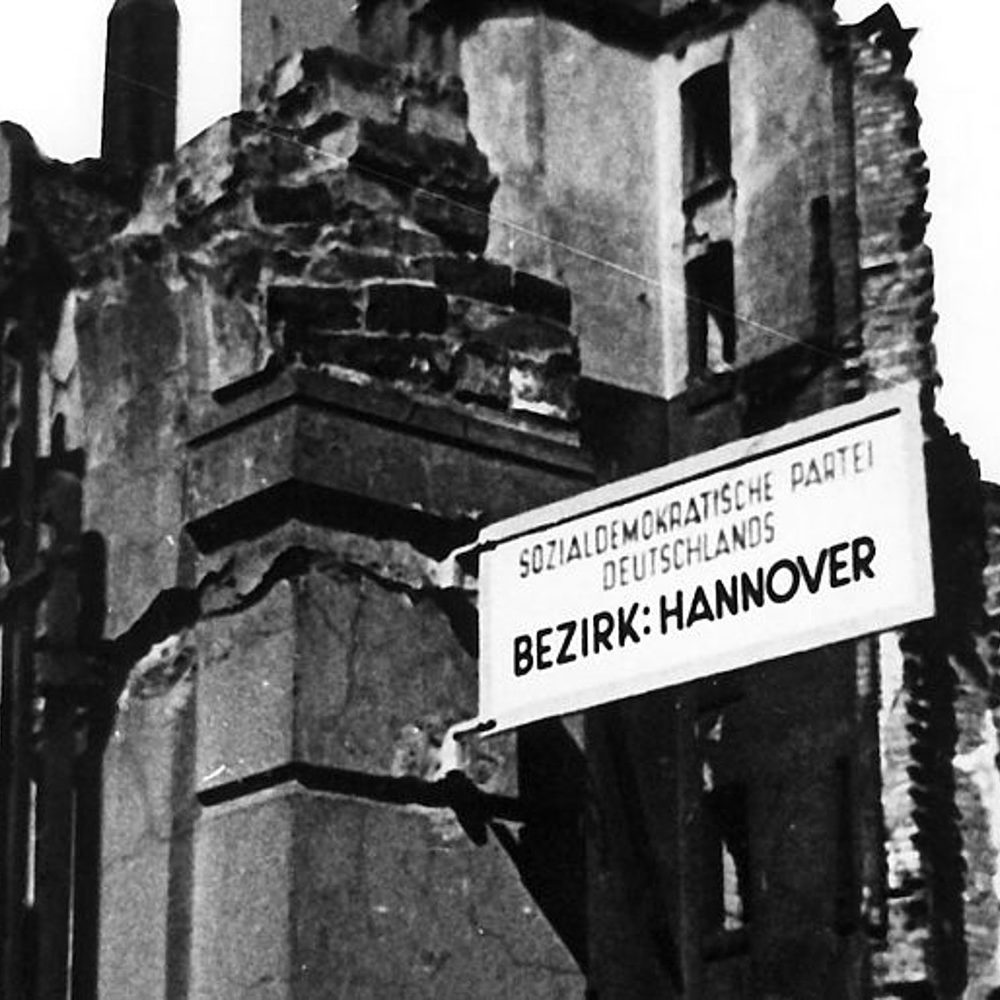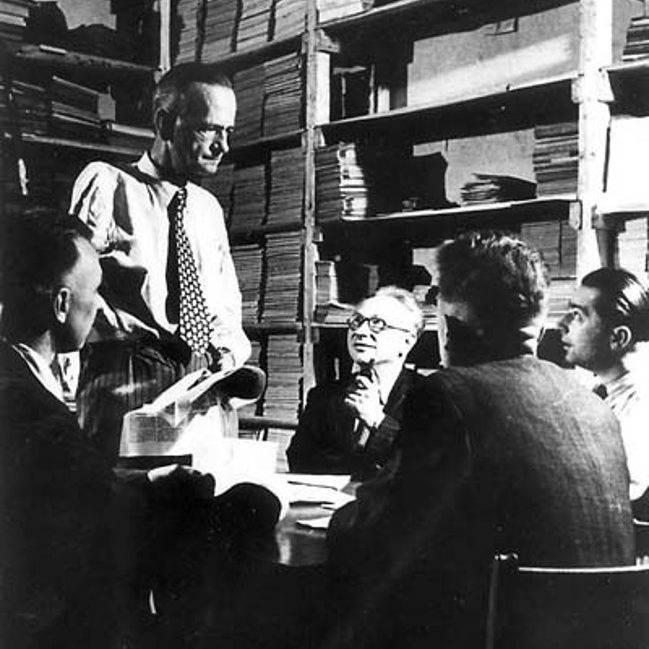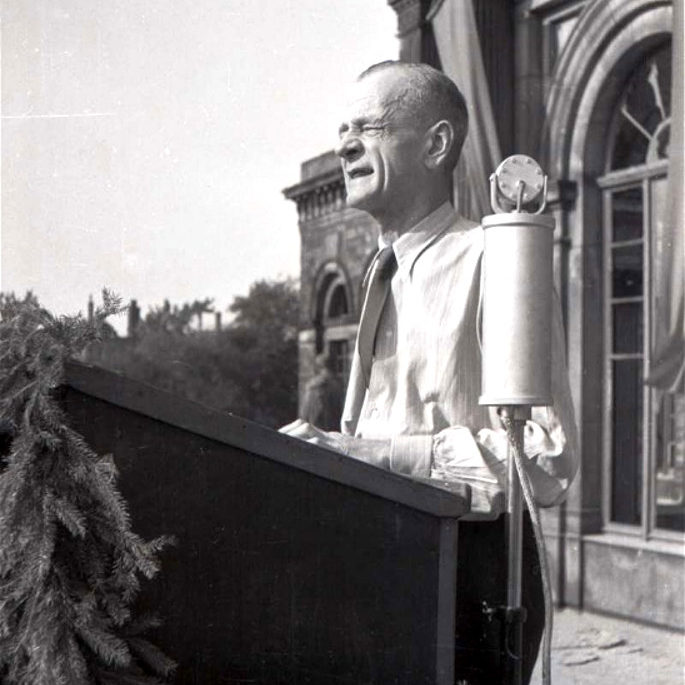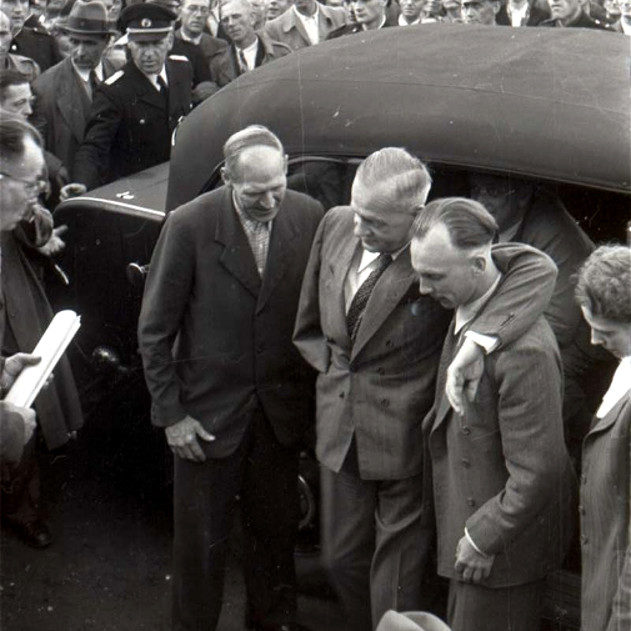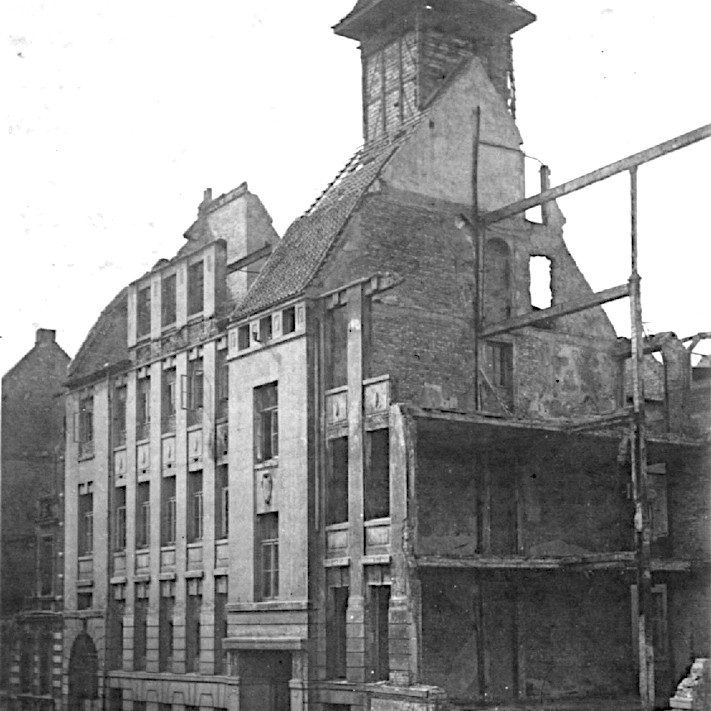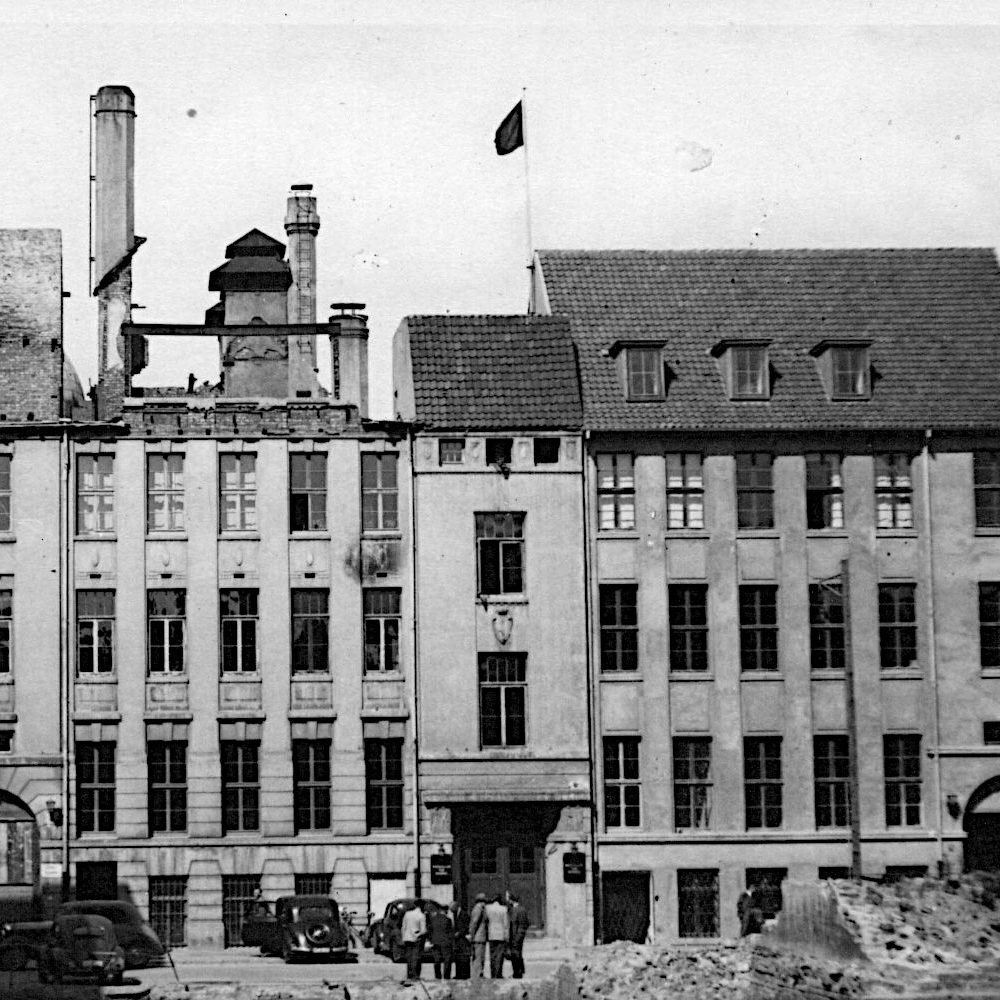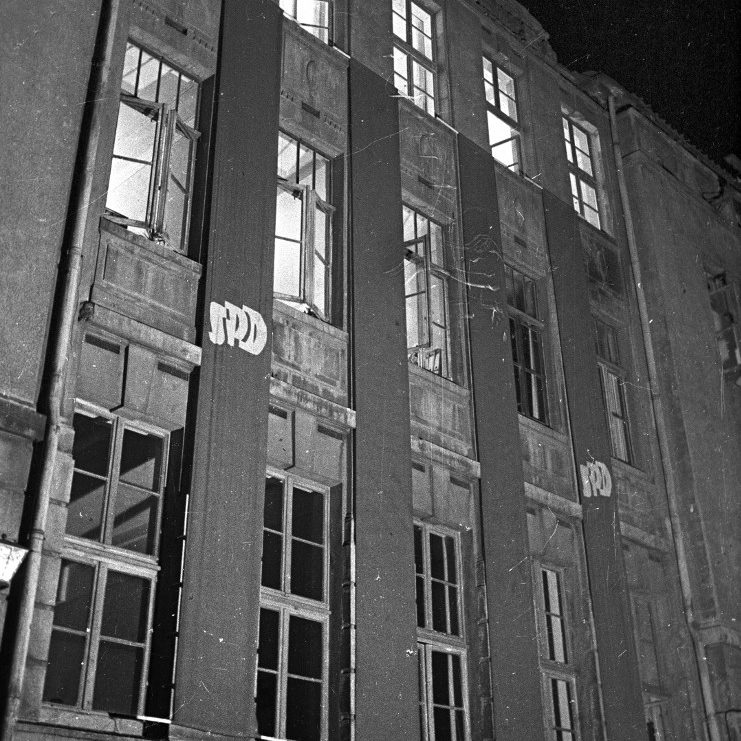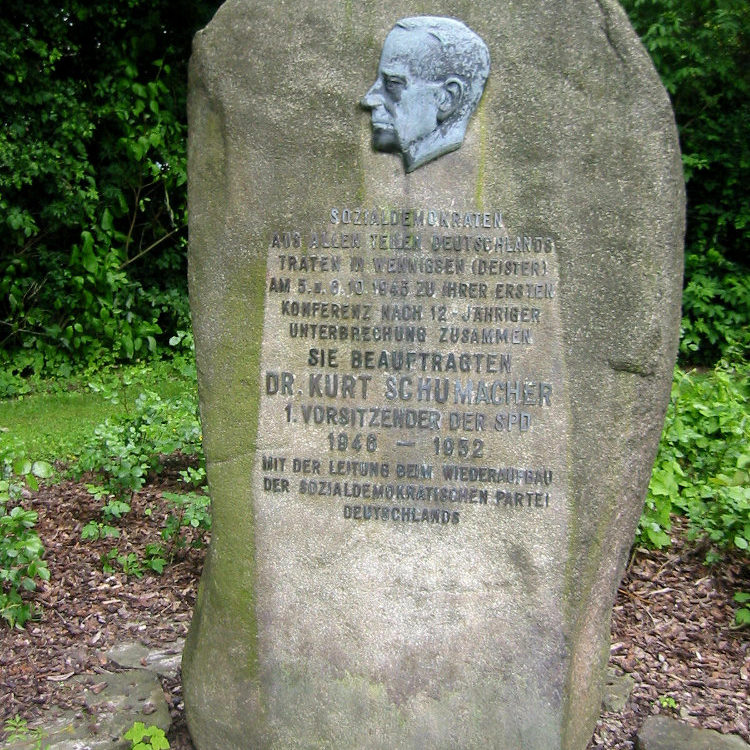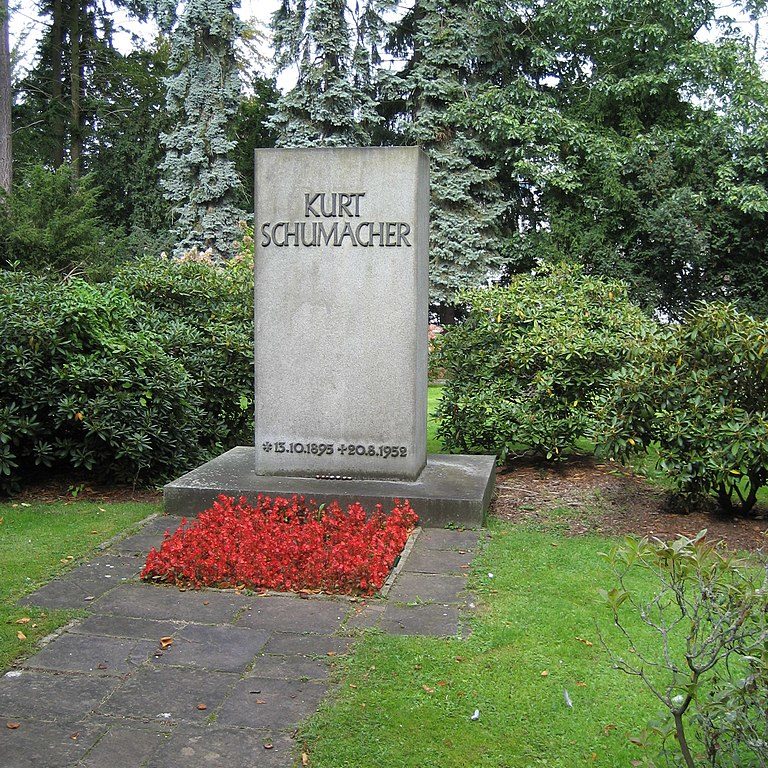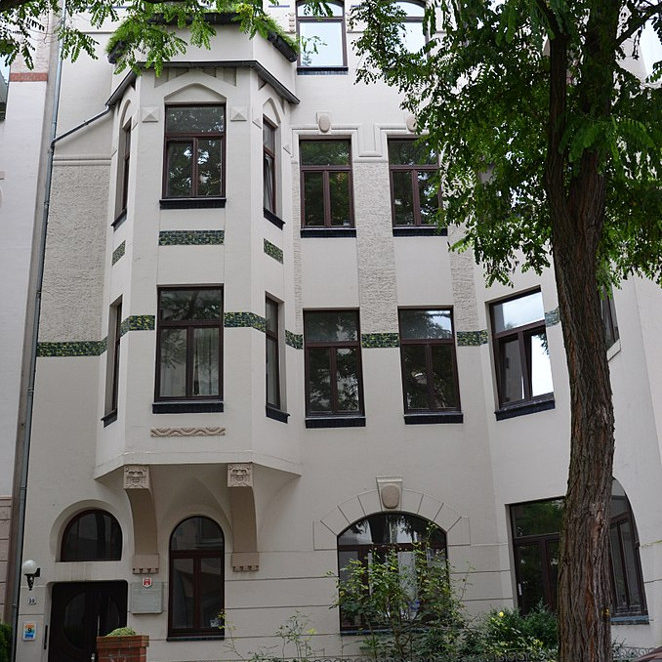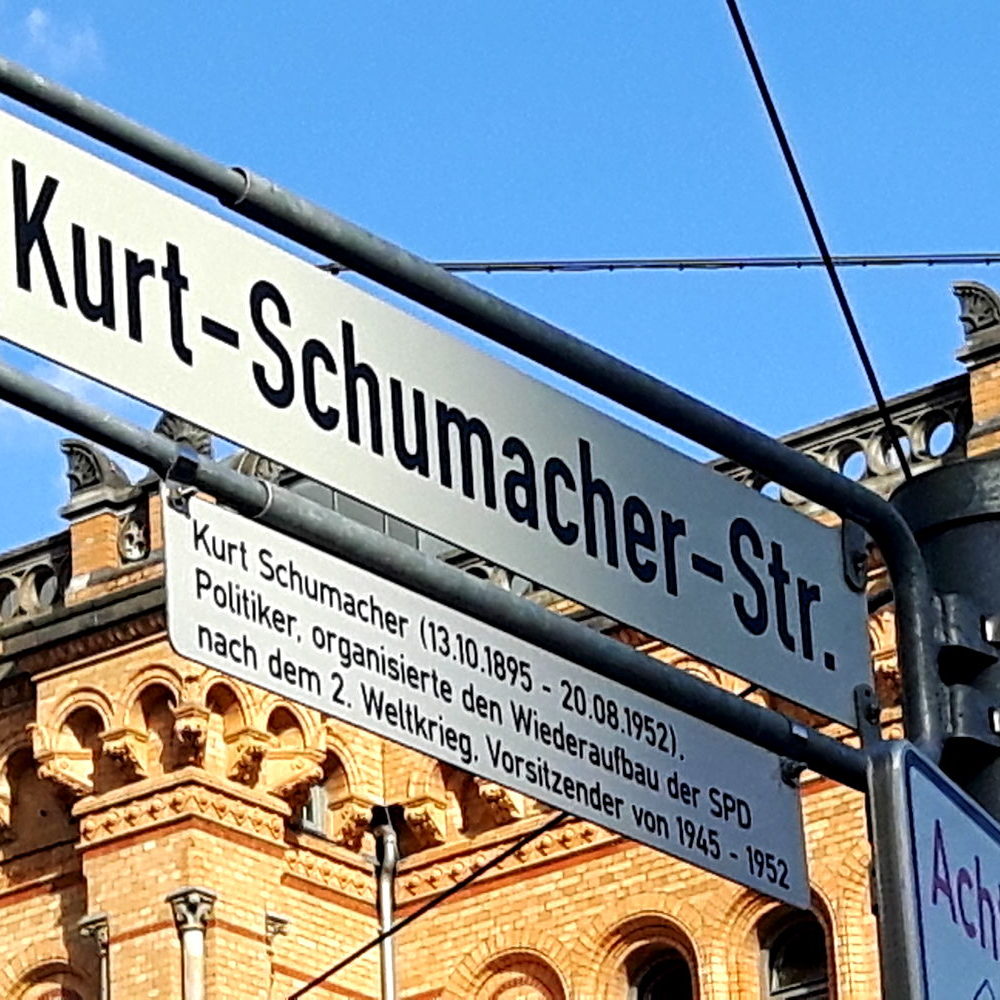The former SPD [abbreviation for Sozialdemokratische Partei Deutschlands, the Social Democratic Party of Germany] member of the Reichstag Kurt Schumacher is sent to Hanover in 1943 after being imprisoned in a concentration camp. Immediately following the liberation of the city, he begins to rebuild the party. For a few years, Hanover is the hub of (West) German social democracy. The SPD headquarters in Odeonstrasse is named after him: Kurt-Schumacher-Haus.
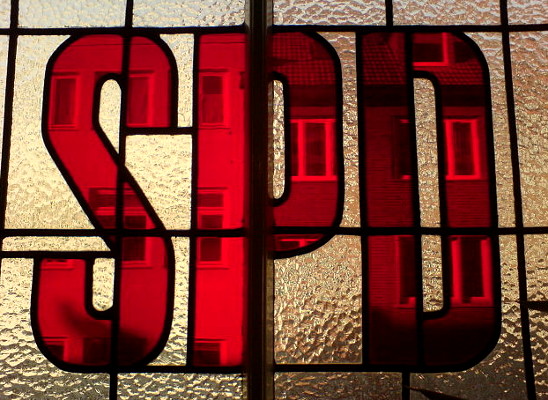
Growing up in West Prussia
Kurt Schumacher (1895-1952) grows up in a middle-class family in Culm, West Prussia. Politically, he is influenced by his father, who, as a liberal politician in local government, belongs to a minority in the otherwise staunchly conservative West Prussia. Young Kurt aligns himself with social democracy at an early age and cultivates friendships with Polish classmates – the border to Russian-controlled Poland is only a few kilometres away. At the start of the war in 1914, he volunteers at the first opportunity and is soon wounded so badly that one of his arms has to be amputated. According to the provisions of the Treaty of Versailles, in 1920 the town of Culm becomes part of the newly formed Polish state and is renamed Chełmno. Kurt Schumacher experiences the heated disputes between Germany and Poland in most cases at first hand, as at the time he is completing his legal traineeship at Culm District Court, graduating in law from the universities of Halle-Wittenberg, Leipzig and Berlin.
Political work
In January 1918, while the German Empire is still in existence, Kurt Schumacher joins the SPD. As an academic, he is one of a minority in the party – in the same way that as a Social Democrat he is one of a minority among the predominantly hardline German nationalist lawyers. During the November Revolution, he is involved in the Berlin Workers’ and Soldiers’ Council and from 1920 onwards, is a full-time SPD politician in the state of Württemberg where he is political editor of the Stuttgart SPD newspaper, from 1924 a member of the Württemberg state parliament, and shortly afterwards also on the executive committee of the SPD parliamentary group. From 1930, he leads the Stuttgart SPD. In the same year he is elected to the Reichstag [Reich parliament]. Already at an early stage, Schumacher took a combative stance against the National Socialists. In a Reichstag speech in February 1932, he declares: “If we recognise anything in National Socialism, it is the fact that for the first time in German politics it has succeeded in the complete mobilisation of human stupidity.” The Nazis do not forget this: soon after, Schumacher will disappear behind the bars of concentration camps for almost ten years.
At the same time, Kurt Schumacher fights against the Stalinist KPD [Kommunistische Partei Deutschlands, i.e. German Communist Party], which he regards as the political twin brother of the Nazis. He accuses it of destroying the first German democracy and splitting the workers’ movement. Equating the extremes of right and left is to become a lifelong theme for him in his politics: his characterisation of communists as “red-coated fascists” is legendary.
Years of persecution
In March 1933, Kurt Schumacher, as a member of the Reichstag, collaborates on the speech made by parliamentary party leader Otto Wels against the Nazis’ “Enabling Act”: “You can take our lives and our freedom, but you cannot take our honour.” In June 1933, in a realistic assessment of the situation, he advocates within the party – against the will of the SPD leadership – to resort to illegal measures. On 6 July 1933, a good two weeks after the SPD was banned, Schumacher is arrested in Berlin. He is sent on an odyssey through the concentration camps of Heuberg in the Swabian Alb, Oberer Kuhberg near Ulm, Dachau near Munich, and Flossenbürg in the Upper Palatinate. In March 1943, now seriously ill, he is released under police supervision to his sister’s home in Hanover. There he is forced to work as a bookkeeper at the Sichel-Werke company in Limmer (founded by a Jewish inventor). After the assassination attempt on Hitler on 20 July 1944, Schumacher is one of the former politicians of the Weimar Republic who is arrested after being placed on lists. After being held at the Gestapo prison in Ahlem, he is briefly sent to the Neuengamme concentration camp near Hamburg. He witnesses the end of the war in Hanover.
New beginning in Hanover: “After Hitler, us”
Hanover is liberated on 10. April by US American troops. Just 9 days later, in an apartment in the unscathed Jacobsstrasse 10 in the working-class district of Linden-Mitte, Schumacher’s first conversation with his SPD comrades from before the war takes place. He is seriously ill. But with his irrepressible will, the authority of the concentration camp survivor and his great organisational and oratory skills drive the re-founding of the party: on 6 May, some 130 Social Democrats meet in the meeting room of the police headquarters in Hanover to elect a provisional party executive. To the British occupation forces at that time, this was illegal! On the same day, the “Office of Dr. Schumacher” also opens in the apartment on Jacobsstrasse. After the ban on the party is relaxed in the British zone, the momentous conference of delegates from 5 to 7 October 1945 is held in the hall of the railway station hotel in Wennigsen am Deister – the town is traditionally social democratic, and in bombed-ravaged Hanover there is no suitable venue. The conference appoints Kurt Schumacher to lead the rebuilding of the SPD – in the Western zones. This is because in Soviet-occupied Berlin, efforts to create a “united front” of the SPD and the KPD are gaining ground, which in April 1946 lead to their (forced) amalgamation under the name of the SED [Sozialistische Einheitspartei Deutschlands, i.e. the Socialist Unity Party of Germany]. The East-West divide becomes final when Kurt Schumacher is elected as the first chairman of the SPD after the Second World War in Hanover on 10 May 1946.
Adenauer’s adversary
The city on the Leine continues to be the centre of post-war Social Democracy for a number of years, with Kurt Schumacher its undisputed leading figure until his untimely death: initially operating out of Jacobsstrasse in Linden, then later, once the debris had been cleared, from the traditional headquarters of Hanoverian Social Democracy in Odeonstrasse at the rear of the trade union building. In the early days of the founding of the Federal Republic, he developed into the main opponent of Konrad Adenauer (CDU) [Christlich Demokratische Union Deutschlands, i.e. Christian Democratic Union of Germany] and did not shy away from playing the patriotic card. His insistence on rapid reunification makes him a fierce opponent of Germany’s ties with the West – his attack on Adenauer as “Chancellor of the Allies” earns him a 20-day ban from sitting in the Bundestag. The former concentration camp prisoner’s stance on the historical responsibility of Wehrmacht officers and Waffen SS [the Armed SS, the combat branch of the Schutzstaffel, i.e. “Protection Squadron”] members is considered questionable. The plan to integrate them into the young democracy goes a very long way – in October 1951, even as far as Schumacher, Herbert Wehner and Annemarie Renger meeting with Otto Kumm. Kumm was the last commander of the “Leibstandarte Adolf Hitler” [Adolf Hitler’s Personal Guard] and is an active functionary of the right-wing extremist lobby group HIAG [Hilfsgemeinschaft auf Gegenseitigkeit der Angehörigen der ehemaligen Waffen-SS, i.e. ‘Mutual aid association of former Waffen-SS members]. Schumacher’s rationale for this was: members of the Waffen-SS had hardly had any close involvement with mass crimes and in individual cases a presumption of innocence would apply.
Defeats and premature death
In the 1949 Bundestag elections, Kurt Schumacher is elected to the first German Bundestag as a member of parliament for the constituency of Hanover-South with 55% of the vote – however, the SPD is narrowly defeated overall by the CDU/CSU. Thereafter, the party remains in opposition in Federal politics for almost two decades. In the elections for the first Federal President, Schumacher is defeated by the FDP [Freie Demokratische Partei, i.e. Free Democratic Party] candidate Theodor Heuss, who is backed by the CDU.
A chain smoker, Kurt Schumacher suffers a stroke in 1951. The now critically ill politician dies in Bonn on 20 August 1952. He is buried in Hanover at Ricklingen municipal cemetery in a grave of honour. The journey of his casket from Bonn to Hanover draws hundreds of thousands who line the streets: “At the border of Lower Saxony, Young Socialists greeted the funeral cortège with a guard of honour of blazing torches. When darkness fell, the coffin was then placed in the domed lobby of the City Hall in Hanover” reported the Norddeutsche Nachrichten [North German News] (Hamburg) on 25 August 1952.
Additional online information
Wikipedia entry: Kurt Schumacher
Forwards: 75 years ago: Kurt Schumacher revives the SPD [in German]
Forwards: “After Hitler, us!“: How the SPD rose again in 1945 [in German]
Public archive of Concentration Camp Memorial Neuengamme: Kurt Schumacher (PDF) [in German]
LEMO: Biography of Kurt Schumacher [in German]
Spiegel Politics: Schumacher, the chancellor that almost was – The tortured candidate [in German]
Video from Hello Lower Saxony: 1945: Kurt Schumacher and the rebuilding of the SPD [in German]
Deutschlandfunk Kalenderblatt A Titan of Social Democracy [in German]
Friedrich Ebert Foundation erinnerungsorte.fes.de/schumachers-beerdigung/ [in German]
Further reading: Click here
Texts and images: Michael Pechel

